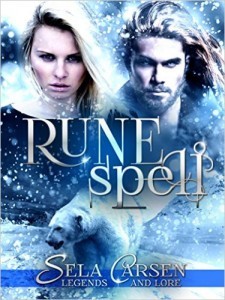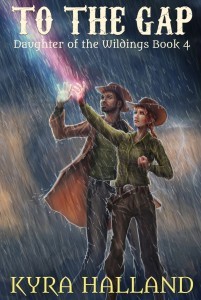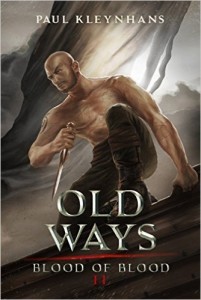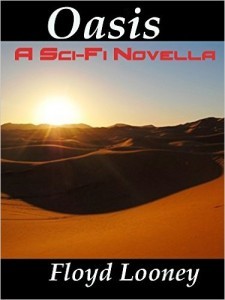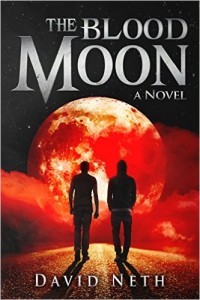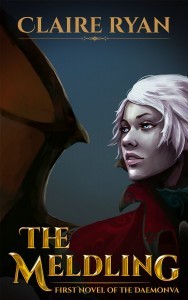Cora Buhlert's Blog, page 104
September 19, 2015
Harvest Festival 2015
September 19 is International Talk Like a Pirate Day, so if you’re looking for piratical reads, check out the Arr, Matey Pirate Bundle at DriveThruFiction.
In my corner of North Germany, September 19 was also the annual harvest festival which is commemorated with a parade, a big party with lots of drinking and loud music and a church service on Sunday morning. I’ve posted photos of previous harvest festival parades here. This year, the harvest festival was also advertised by these very cute Straw-Minions.
The parade passed through my street again this year, so I took some photos of the decorated floats made by various local sports teams, social clubs and other organisations:

The harvest festival parade always begins and ends with a truck from the local volunteer fire brigade.

The float bearing the so-called harvest crown is always the first float after the fire truck. The harvest crown is made by whatever organisation or club organised the harvest festival this year (they take turns). This year, it was the volunteer fire brigade’s turn, so the harvest crown is escorted by firefighters. After the parade, the crown is placed in the local church.

The local women’s and girls’ gymnastics club is always known for its fanciful costumes. This year, they dressed as witches.

More witchy gymnastics ladies.

The float of the allotment garden association of Tölkenbrück is decorated with some of the fruit and vegetable produced in the allotment gardens.

This Wild West themed float belongs to the local country youth organisation. Smoke was wafting from the float at a quite alarming rate. I suspect they had a dry ice machine – either that or a particularly smokey barbecue.

This small wagon belongs to the club “Seckenhauser Urgesteine” and is decorated with straw.
This float was decorated by the local sport shooting club. I was surprised by the number of teen boys on board, since target shooting is mostly considered a sport for older people.

This float is a true rarity, since it carries some of the last surviving members of the Kyffhäuserbund in the wild. Most of them are neighbours of mine, which is why they’re waving.
The Kyffhäuserbund got its start in the early 20th century as a veterans’ organisation. Nowadays, it’s mostly a target shooting organisation and social club for the rural (or in our case, semi-rural) elderly. Its membership numbers are rapidly dropping due to old age (several of the people on that float are over eighty, one lady is almost ninety and one couple will be celebrating their 60th wedding anniversary next month), hence the joke about those being the last surviving members in the wild.

The “Hallenhuser Jungs un Deerns” (Low German for “boys and girls of Hallenhausen”, a youth club) are having a swinging party on their float.

The theme of this float is “Beware of the harvest thieves”.

Many of the floats have a staircase in the rear, so people can get on and off. Also note the decorated “Kettcar” go-kart and the boy asking for candy. The occupants of the floats traditionally throw candy at the spectators, which the local kids eagerly collect.

The theme of this beautiful float is “Harvest wedding”. The bride (at the back of the float) is actually a guy with a wig in a white dress.

This girls’ football team would like to make it clear that they’re not doing ballet. I really like the subtle jab at traditional gender roles in sports here.

More football, this time a cheery and rather drunk boys’ team.

Football float the third: This one belongs to the men’s senior team.
The coach of the local men’s football team actually lives across the road and was watching the parade with his family. Afterwards, I said to him, “I really hope your team doesn’t have a match this weekend, because I fear they’ll be too drunk to find the goal.”

A very big tractor

Another local oddity, the bowling club “Hest Em Bi Di?” (Have you got it with you?)
“Hest Em Bi Di?” is a bowling club with a twist. The members all carry a little plastic pig with them at all times. If two members meet on the street, at the bakery, etc…, one will ask the other “Have you got it with you?”, whereupon the other member must produce the little plastic pig. If the other member does not have the little plastic pig, he or she must pay a fine, which is used to finance parties, prizes, etc…

The rear of the “Hest Em Bi Di?” float is decorated with their mascot, a pig, as well as a teddy bear in a Werder Bremen jersey.
I’m glad that we still have a harvest festival parade, since so many smaller events of this kind died out in recent years. Though it’s also notable that some long-time harvest festival parade staples are missing such as the Hördener Heideweg home owner’s association, which was always known for its beautiful floats, the Liederkreis Harmonie (singing circle Harmony), the horse riding club or the Klosterbläser Heiligenrode (Heiligenrode abbey blowers brass band). Liederkreis Harmonie and Hördener Heideweg home owner’s association are probably absent due to the advanced age of their members. No idea what happened to the abbey players or the horse riders.
 Send to Kindle
Send to Kindle
September 13, 2015
Photos: Lüneburger Heide 2015
Last week, I took advantage of the pleasant and sunny weather to make a day trip to the Lüneburger Heide, a nature preserve with a unique heath landscape approximately 70 kilometers to the East of Bremen. The Lüneburger Heide as well as the related nature park Südheide (Southern Heath) offer plenty of hiking spots.
You can see photos of previous trips to the Lüneburger Heide, namely to the Ober- and Niederhaverbeck region as well as to the Heide am Schillohsberg in the Südheide here.
I got lucky, cause the heath was still in full bloom in all its purple glory, though already slightly fading. The photos were all taken in the so-called Osterheide (Eastern Heath) between the towns of Schneverdingen and Heber.
The Osterheide area has a varied history, since it housed a military airport during WWII, then became a camp for refugees and displaced persons for a few years. After the displaced persons had been re-placed, the British Army took over the area and used it as a closed to the public training ground until 20 years ago. There still are several closed to the public military training grounds in the Lüneburger Heide region – for some reason armies love heath area for training. But thankfully the British Army left in 1994 and Osterheide is now a nature preserve and hiking ground and open to the public at last.

A look across the Osterheide in full bloom near Schneverdingen.

Heath panorama with scattered trees. It goes on like that for approx. 13 kilometers all the way to the Wilseder Berg, the highest elevation in the area.

Horse-drawn carriages like this one carry tourists across the heath. This particular carriage travels along the so-called “Spitzbubenweg”, an old smuggler’s path.

Rainwater has collected in the ruts left behind by the horse carriages.

A wilder patch of heath seen through a small forest.

A woodland path with a birchtree and a patch of heath in the background.

A tree-dotted patch of heath seen through the split trunk of a birch tree.

A so-called “Findling”, a large rock left behind by the retreating glaciers of the last ice age, serves as a signpost.

A path through the pine forest adjacent to the heath.

In the middle of the pine tree forest, I came upon this open air classroom complete with a blackboard.

A collection of beehives. Heide honey is a popular specialty of the area.

Heath landscape with dramatic clouds. Hard to imagine that tanks were rolling here only 20 years ago.

Heath panorama. The con trails in the sky originate either at the airports of Hamburg or Hannover.

The heath with the red berries of a rowan tree in the foreground.

A narrow footpath through the heath. The white colour is due to sand deposited by the retreating glaciers of the last ice age.

A close-up look at heather plants in full bloom.
However, the Lüneburger Heide has not just beautiful hiking spots, but there are also charming towns dotted throughout the heath. Here are a few photos of the town of Bispingen, where I stopped for lunch. I had pasta with porcini mushrooms, which grow on the heath and are native to the area.

The Neogothic St. Antonius Church in Bispingen. It’s only a little over 100 years old (built in 1908) and replaces an older church.

The St. Antonius Church viewed head on.
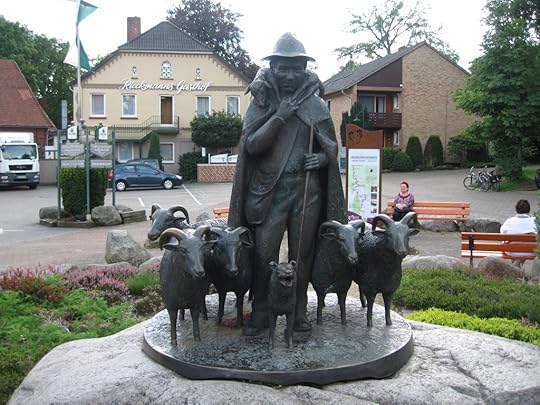
This statue in the town centre of Bispingen shows a shepherd with the distinctive Heidschnucken sheep native to the area.
The meat of the Heidschnucke is a staple on the menus of restaurants in the Lüneburger Heide region (and there are a lot of restaurants, considering this is a tourist area) and artworks depicting Heidschnucken can be found in many towns in the area, but the actual sheep are surprisingly rare. At any rate, I’ve never come close enough to one to take a photo.
Bispingen is a centre of the tourist industry, probably due to its access to the highway A7. In addition to its charming town centre, it also boasts an indoor tropical resort (not really my thing at all, but plenty of people love them, considering how many of these places have sprung up in the past 25 years), an indoor skiing arena, a go-cart racetrack owned by Ralf Schumacher, younger of the Formula One racing Schumacher brothers, an archery range (to let out your inner Arrow, Hawkeye, Katniss or Merida) as well as the crazy house, a regular house standing upside down. You can see some photos of Bispingen’s crazier attractions at the end of this post from last year.
 Send to Kindle
Send to Kindle
September 7, 2015
Rest in Peace, Max Kruse
Max Kruse, German writer of children’s and YA books, died aged 93. Die Welt has a lovely obituary.
Everybody who grew up in the German speaking world in the past 45 years is likely familiar with Urmel aus dem Eis (Urmel from the Ice), Max Kruse’s best known children’s book. Urmel aus dem Eis is the story of the critter Urmel who emerges from a deep frozen dinosaur egg and navigates the modern world. Kruse was allegedly inspired to write the story when his family purchased a freezer in the late 1960s. Here is a clip of Urmel singing from the famous TV adaptation by the Augsburger Puppenkiste puppet theatre.
However, Max Kruse wrote a lot more than just Urmel. And yes, many of his books are SFF. Hell, Urmel even gets to travel into space in one of the books. Indeed, it’s telling how many of our great SFF writers of the postwar era were children’s book writers such as Michael Ende, Ottfried Preußler and Max Kruse. And quite often, these writers and their books were beloved by young readers, but not by teacher and educators who hated them for their escapism and lack of realism, as this obituary for Max Kruse in the Frankfurter Allgemeine Zeitung shows.
Max Kruse also had a fascinating life story apart from his books. He was the youngest of eight children of a famous family. His father was the sculptor Max Kruse, his mother the dollmaker Käthe Kruse. Young Max even became the model for one of his mother’s dolls, namely this cutie, the life-size baby doll “Du Mein”, which was originally developed for nursing students, because its head and limbs were weighted, so it behaved like a real baby.
I was thrilled when I learned that the man who wrote the Urmel books was the son of Käthe Kruse and the model for the life-size Käthe Kruse baby doll I craved so much as a young girl, but couldn’t afford, because Käthe Kruse dolls were prohibitively expensive due to being still handmade. I never did get a “Du Mein” baby (and they’re no longer being made, it seems), but I do own a small Käthe Kruse baby doll that I bought in the late 1980s. I call him “Baby T”, because he looks just like Mr. T down to the distinctive hairstyle. And yes, there are black Käthe Kruse dolls and have been at least since the 1980s. I own two of them, Baby T and his big sister Tonya, who are joined by their white friends Irene and Patricia.
So rest in peace, Max Kruse, creator of Urmel, Don Blech, Lord Schmetterhemd and many others.
 Send to Kindle
Send to Kindle
September 6, 2015
Two new releases and three stories about dystopias, apocalypses, nuclear war and cryogenics
As I mentioned yesterday, I have another new release announcement to make this weekend. In this case, it’s even a double new release announcement, because I have two e-books containing three stories altogether to announce.
These stories also came out of the July Short Story Challenge, i.e. the challenge to write a short story per day during the month of July. Over at the Pegasus Pulp blog, I’ve also got a more detailed post about the July Short Story Challenge and what I learned during the challenge.
One thing I did notice during the July Short Story Challenge is that I occasionally wrote stories in subgenres or styles I probably wouldn’t have tried otherwise. The two stories collected in Four Minute Warning are an example of this, because both belong to a subgenre I don’t much care for, namely nuclear war fiction. In fact, I’m not actually sure what precisely it was that inspired these two stories, though I suspect it was the result of watching footage of nuclear bomb explosions for another story I wrote for the challenge.
As a kid of the 1980s, I have seen pretty much every anti-nuclear-war movie there is: The Day After, Threads, On the Beach, The War Game, Testament, Dr. Strangelove, Where the Wind Blows, The Bedsitting Room. You name it, I’ve probably seen it. I’ve also read plenty of nuclear war fiction, e.g. A Canticle for Leibowitz, The Long Tomorrow, On the Beach, That Only a Mother, Die Letzten Kinder von Schewenborn, etc…
However, the fact that I have consumed my share of nuclear war fiction and films does not mean that I am a fan of the subgenre. Instead, I have a rather conflicted relationship to these works. I can acknowledge their importance in promoting nuclear disarmament, while being put off by the soap opera melodrama in many of them (The Day After is particularly bad about this, but Testament, On the Beach and even Threads also lay it on thick). What is more, I was always struck by the fact that the British and American characters in those works never took part in protests (anti-nuclear protests were something of a background noise of my childhood) and always seemed to assume that they could survive a nuclear war. Of course, the point is ultimately that they can’t survive, because pretty much everybody in these works usually dies in various horrible ways. But the fact that movies made during the 1980s still showed people assuming that they could survive a nuclear war always struck me as very strange, since no one in Germany believed that except for maybe a handful of politicians.
In the end, when writing my own takes on the nuclear war subgenre, I did take the “ordinary people in extraordinary circumstances” approach that I often criticized about other works in the subgenre, though I chose to focus on college students rather than suburban families. Plus, my characters are rather fatalistic and don’t assume that they will survive. In fact, both stories are set during the few minutes between the time the alarm is given and the moment the bombs hit.
And yes – fair warning – there is no happy ending to either story.
Four Minute Warning
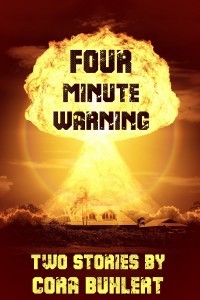 Two tales of love and loss and nuclear war.
Two tales of love and loss and nuclear war.
Thirteen Minutes
Caught in a supermarket, when the alarm goes off, Luke and David admit some unspoken truths to each other before the bombs fall.
Four Minute Warning
Tracy and Jimmy know you can’t survive a nuclear war, even if civil defence leaflets and radio broadcasts claim otherwise.
More information.
Length: 5700 words
List price: 0.99 USD, EUR or GBP
Buy it at Amazon US, Amazon UK, Amazon Germany, Amazon France, Amazon Netherlands, Amazon Spain, Amazon Italy, Amazon Canada, Amazon Australia, Amazon Brazil, Amazon Japan, Amazon India, Amazon Mexico, Kobo, Barnes & Noble, Apple iTunes, Scribd, Oyster, Smashwords, Inktera, txtr, Thalia, Weltbild, Hugendubel, Der Club, Libiro, Nook UK, DriveThruFiction, OmniLit/AllRomance e-books, Casa del Libro, Flipkart, e-Sentral and XinXii.
The second new release is also a result of the July Short Story Challenge. This one was inspired by a random word generator which gave me the words “frozen” and “servant”. That started a train of thought about a rich and terminally ill persons who wants to have their servants cryogenically frozen along alongside themselves just like the pharaohs of ancient Egypt. The end result was a piece of near future science fiction (again not really a subgenre I much care for) about the social and economic consequences that ensue when cryogenic freezing suddenly becomes a viable technology.
A History of the New Ice Age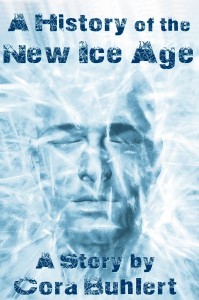 The cryogenic freezing of the dead in hope of a eventual revival has long been the province of cranks and crazies. However, when two frozen mountain gorillas are successfully revived, cryogenics suddenly becomes a viable medical technology. The first humans are revived soon thereafter and though most of them have financial difficulties not to mention problems adjusting to the new world in which they find themselves, their successful revival nonetheless sparks a run on cryogenic freezing with unforeseen social and financial consequences…
The cryogenic freezing of the dead in hope of a eventual revival has long been the province of cranks and crazies. However, when two frozen mountain gorillas are successfully revived, cryogenics suddenly becomes a viable medical technology. The first humans are revived soon thereafter and though most of them have financial difficulties not to mention problems adjusting to the new world in which they find themselves, their successful revival nonetheless sparks a run on cryogenic freezing with unforeseen social and financial consequences…
This short story of 2300 words chronicles the cryogenics boom of the mid to late twenty-first century.
More information.
Length: 2300 words
List price: 0.99 USD, EUR or GBP
Buy it at Amazon US, Amazon UK, Amazon Germany, Amazon France, Amazon Netherlands, Amazon Spain, Amazon Italy, Amazon Canada, Amazon Australia, Amazon Brazil, Amazon Japan, Amazon India, Amazon Mexico, Kobo, Barnes & Noble, Apple iTunes, Scribd, Oyster, Smashwords, Inktera, txtr, Thalia, Weltbild, Hugendubel, Der Club, Libiro, Nook UK, DriveThruFiction, OmniLit/AllRomance e-books, Casa del Libro, Flipkart, e-Sentral and XinXii.
 Send to Kindle
Send to Kindle
September 5, 2015
New German language anthology available – Neue deutschsprachige Anthologie im Handel
I actually had planned to make a new release announcement this weekend, but now you get two, since it turns out that I also have a German language short story in an anthology I had sort of forgotten about.
Kurze Geschichten für Zwischendurch is a German language indie showcase anthology along the lines of Stories on the Go (in which I also have a story BTW) and contains stories by 84 different authors. And best of all: The anthology is 100% free.
My story in this anthology is called “Harry im Glück” (Lucky Harry) and it’s a story of luck and fate set among the ruins of Post-Communist East Germany.
***
Ich hatte schon geplant, dieses Wochenende ein neues Buch anzukündigen. Aber jetzt kriegt Ihr zwei Ankündigungen, da es sich herausstellt, dass ich auch eine Kurzgeschichte in einer neuen deutschsprachigen Anthologie habe, die ich schon beinahe vergessen hatte.
Die Anthologie heißt Kurze Geschichten für Zwischendurch. Der Titel ist Programm, denn es handelt sich hierbei um sehr kurze (1000 Worte oder weniger) Geschichten von 84 verschiedenen, deutschsprachigen Indie Autoren. Und das allerbeste: Die Anthologie ist 100% kostenlos.
Meine Geschichte heißt “Harry im Glück” und führt uns in die Ruinen der ostdeutschen Provinz in der Nachwendezeit, wo sich die Wege eines Bankräubers und eines Obdachlosen kreuzen.
Kurze Geschichten für Zwischendurch
 Die kostenlose Selfpublisher-Anthologie: 84 Autorinnen und Autoren stellen sich anhand aktueller Kurzgeschichten von maximal 1.000 Wörtern vor.
Die kostenlose Selfpublisher-Anthologie: 84 Autorinnen und Autoren stellen sich anhand aktueller Kurzgeschichten von maximal 1.000 Wörtern vor.
Ideal zur Überbrückung kurzer Wartezeiten, im Bus, in der S- und U-Bahn, im Wartezimmer, in der Mittagspause …
Unterschiedliche Schreibstile und verschiedene Genres laden zum Stöbern und Schmökern ein.
Mit Geschichten von:
Phil Humor · Melissa David · Michael Paul · K.C. Stevens · Carola Wolff · Rich Schwab · John McLane · Silvia Nagels · May B. Aweley · Karina Reiß · Bettina Kiraly · Frank Böhm · Katharina Cubin · E. Sawyer · Mike Scholz · Nessa Notedigo · Monika Baitsch · Beatrix Lohmann · Valerie le Fiery · D.C. Hubbard · Moa Graven · Sabine Schulter · Andalie Herms · L.R. Bäuml · Simon Savier · Jonas Kissel · Adelheid von Theilenberg · Markus Dittrich · G. Greschke-Begemann · Bettina Wohlert · Ilona Bulazel · Elfie Nadolny · Laura Mench · Marla Lovett · Shehera Connor · Dagmar Finger · Joachim Harksen · Maria C. Brosseit · Melanie Neubert · Sonja Rabaza · Burkhard Tomm-Bub · Nicole de Virgiliis · Martin Maier · Charlotte da Silva · Jörg Krämer · Sabine Hennig-Vogel · T. S. Bordemé · Katrin Lachmann · Tim Jöris · Birgit Otten · Peter Brentwood · Laura Gambrinius · Kirsten Harder · Klara Bellis · K.D. Hendriks · Henry D. Rottler · Ele Wolff · Angela Planert · Leo Tiresias · David May · M.P. Anderfeldt · Waltraud Lang · Katja Fischer · Robert Friedrich von Cube · Cora Buhlert · Jill J. Jenkins · Ludmilla Dümichen · Astrid Rose · Lisa Diletta · Haiko Herden · Sal Rowney · Cornelia Rückriegel · Erika Eisenlöffel · Jörg Luzius · Petra Arentzen · Sara Puland · Claudia Dahinden · Marcel Meder · Jacqueline Schmidt · Lefty E. Ria · Stefanie Droßel · Gabriele Steiniger · Stefanie Maucher · Mika M. Krüger
Preis: 0,00 EUR, USD oder GBP
Erhältlich bei Amazon Deutschland, Amazon USA, Amazon UK, Amazon Niederlande, Amazon Frankreich, Amazon Italien, Amazon Spanien, Amazon Canada, Amazon Australien, Amazon Brasilien, Amazon Mexico, Amazon Japan, Amazon Indien, Kobo, Apple iTunes, Google Play, Thalia, Weltbild, Hugendubel, Der Club, BOL, Otto-Media, Donauland, buecher.de, buch.de, eBook.de, beam eBooks, Barnes & Noble, txtr, Inktera, Smashwords, Casa del Libro, Flipkart, e-Sentral und XinXii.
 Send to Kindle
Send to Kindle
August 30, 2015
Indie Speculative Fiction of the Month for August 2015
 It’s that time of the month again, time for “Indie Speculative Fiction of the Month”.
It’s that time of the month again, time for “Indie Speculative Fiction of the Month”.
So what is “Indie Speculative Fiction of the Month”? It’s a round-up of speculative fiction by indie authors newly published this month, though some July books I missed the last time around snuck in as well. The books are arranged in alphabetical order by author. So far, most links only go to Amazon.com, though I may add other retailers for future editions.
Once again, we have new releases covering the whole broad spectrum of speculative fiction. We have science fiction, space opera, science fantasy, paranormal romance, fantasy romance, post-apocalyptic fiction, dystopian fiction, YA fantasy, epic fantasy, urban fantasy, Asian fantasy, grimdark fantasy, weird western, demons, djinns, vampires, witches, werewolves and other shifters, space pirates, exiled princesses, desert planets, Wild West mages, lots of LGBT characters and much more. We also have a whole lot of books by women this month.
Don’t forget that Indie Speculative Fiction of the Month is also crossposted to the Speculative Fiction Showcase, a group blog run by Jessica Rydill and myself, which features new release spotlights, guest posts, interviews and link round-ups regarding all things speculative fiction several times per week.
As always, I know the authors at least vaguely, but I haven’t read all of the books, so Caveat emptor.
And now on to the books without further ado:
In most fairy tales, the prince rescues the princess. It’s not often she gets to return the favor.
Mai Westenra is pulled into a centuries-old quest for vengeance and magic, never realizing that she’ll find love in the midst of danger.
Tyr Halvarsson has waited lifetimes to be rid of his curse. Resigned to his immortal half-life, one selfless act of humanity can redeem him. Or kill him.
Together, Mai and Tyr must work against time and magic to perform the runespell that will save their lives and give them a chance at love that lasts.
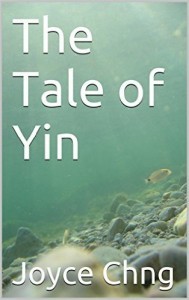 The Tale of Yin by Joyce Chng:
The Tale of Yin by Joyce Chng:
The duology of Oysters, Pearls & Magic and The Path of Kindness sees the stories of Mirra and her daughter, Kindness, as they struggle to find their identities and selves on the planet they have called home. A feminist YA novella, the Tale of Yin looks at magic, privilege, the landscape and compassion.
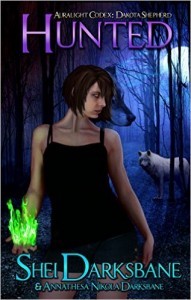 Hunted by Shei and Annathesa Nikola Darksbane:
Hunted by Shei and Annathesa Nikola Darksbane:
Dakota Shepherd is such a newb: newly Awakened, rookie werewolf, supernatural investigator in training. Her command of the wolf inside is shaky at best, and her grasp of the unstable magic she wields is worse. She sure has a lot to learn about her new life in the supernatural world. So why would anyone want to stalk her?
A trespasser in pack territory. Blood on the mountain. An urban legend, spoken only in whispers.
Can Dakota rise to the challenge of a deadly foe?
There’s no shame in being new: everyone starts out that way. But in a world of powerful supernatural threats, being a newb could get a girl killed. And if Dakota isn’t up to the job of protecting herself, how can she hope to protect her loved ones from the ancient supernatural killer that hunts them?
This is the sequel to Awakened.
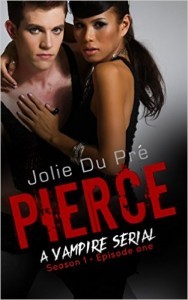 Pierce: A Vampire Serial, Episode 1 by Jolie de Pré:
Pierce: A Vampire Serial, Episode 1 by Jolie de Pré:
When vampire warning signs flog the city and people mysteriously disappear one by one, Alicia avoids the nightly hours like the black plague. This attractive, African-American lady spends her days waitressing all while struggling to make a living after a devastating breakup. Her city is already a danger zone, and the arrival of a Caucasian, blood-thirsty trio (Dagon, Vince, and Bess) only amplifies the dilemma. Dagon is a romantic treading between the lines of hopeless and hopeful, whereas Vince’s sexual compulsion doesn’t leave him with any room for true love. Bess is clearly attracted to the much-flaunted Dagon, but alas, her interest is unrequited. Could it be that someone else—of non-vampiric origin, has grabbed a tight hold on his non-beating heart? And with all these monstrosities running about, is Alicia truly safe in the comfort of her own home between sunset and sunrise?
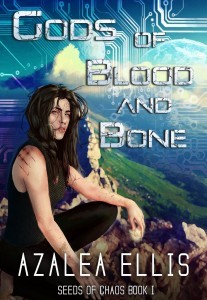 Gods of Blood and Bone by Azalea Ellis:
Gods of Blood and Bone by Azalea Ellis:
My name is Eve Redding. I am the new god.
I never wanted to become a Player in the Game, never intended for any of this to happen. I was content with my ordinary, invisible existence among the millions of civilians crowding my city. But the monstrous creators of the Game forced me to Play, and I’m the type to cling to life by the tips of my bloody fingernails.
At first, I was enamored by the ability to augment everything about myself – to become smarter, stronger, prettier…better. But after my teleportation to that first Trial – a death tournament held on a beautiful, vicious alien world – I would have done anything to escape the Game.
I needed power to protect myself and those I cared about from the Game and its creators, so I took it. But every deadly choice I made along the way eroded not only what once made me weak, but what also made me human.
 Riot of Storm and Smoke by Jennifer Ellision:
Riot of Storm and Smoke by Jennifer Ellision:
War draws closer, like a tide to the shore.
Bree and her friends have escaped the clutches of the Egrian King, but their troubles are far from over. Still reeling from the secrets that drew new breath when her father took his last, Bree sets off for the safety of Nereidium– the kingdom she’s just learned is hers.
But with the King’s ire at its peak and war a certainty, Nereidium is no longer safe. As Prince Caden rallies the Egrian people against his tyrant father, Bree, Princess Aleta, and Tregle race to the Nereid shore to warn them of the incoming danger—and to put the Nereid Princess on the throne.
The only trouble there: Bree can’t bring herself to reveal that the Princess is her.
It’s not a dilemma she can waste time pondering. With a new weapon in his arsenal, the King’s strikes are sure to be bolder than ever before. And Bree may not be ready to wear a crown… but she won’t let her kingdom down without a fight.
This is the sequel to Threats of Sky and Sea.
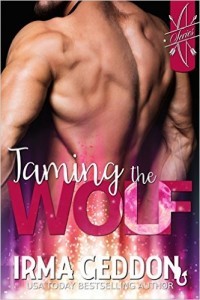 Taming the Wolf by Irma Geddon:
Taming the Wolf by Irma Geddon:
Jared is a young medical resident with a quick wit, a ripped body and a heart of gold. He has a terrible secret—one that has always stopped him from baring his heart to any girl.
Paige is a smart girl, but she’s hopelessly shy and awkward—that is, until Cupid stabs her with his golden arrow, and all she can think about is getting in the pants of perfect but secretive Jared.
Will Cupid’s decision to make Paige fall hopelessly in love with Jared spell trouble for them both?
The secret of Lainie’s forbidden magical gifts has been exposed, and Silas wants to take her far away from the Wildings to a place where she can be safe. To earn money for the journey, Silas signs them up to work on the big annual cattle drive to the Gap.
Lainie dreams of making the Wildings into a place where she and Silas and other mages can live in peace. The cattle drive is the perfect opportunity for her and Silas to show the Plain settlers of the Wildings that not all mages are wicked, heartless monsters.
While Silas has reason to believe that the danger to Lainie is worse than he thought, Lainie can’t agree that leaving the Wildings is the answer. As they travel with the herd, Lainie and Silas must avoid being captured or killed by mage hunters and discovered by the mage-hating Plains, while protecting the herd from renegade mages looking for money and trouble. And they have to find a way to resolve the disagreement between them – do they seek refuge in a faraway land or stand and face the dangers of being outlaw mages in the Wildings? – before it tears them apart.
This is Book 4 of Daughter of the Wildings, western fantasy romance for adults and older teens.
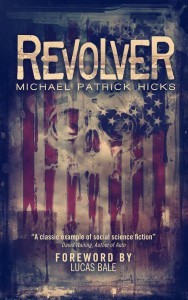 Revolver by Michael Patrick Hicks:
Revolver by Michael Patrick Hicks:
Cara Stone is a broken woman: penniless, homeless, and hopeless. When given the chance to appear on television, she jumps at the opportunity to win a minimum of $5,000 for her family.
The state-run, crowdfunded series, Revolver, has been established by the nation’s moneyed elite to combat the increasing plight of class warfare.
There’s never been a Revolver contestant quite like Cara before. The corporate states of America are hungry for blood, and she promises to deliver.
The “stunning and harrowing” short story, originally published in the anthology No Way Home, is now available as a standalone release and features an all-new foreword written by award-winning science fiction author, Lucas Bale.
Saul escaped the capital with the blood of the Emperor and Princes on his hands, but the recently crowned Empress seeks revenge. She will not rest until her father’s murder is avenged, and sends her Inquisitors, the Dark Legion, to bring him to justice. While hunted by the Inquisition, monsters of the deep, and pirates, Saul sets off to free his brother, the rightful King of Ubrain, from the arena in Qash—a city built on the backs of slaves.
This is the sequel to Dark Legion.
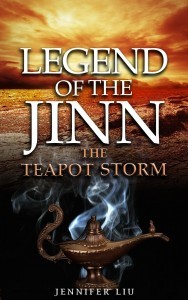 Legend of the Jinn – The Teapot Storm by Jennifer Liu:
Legend of the Jinn – The Teapot Storm by Jennifer Liu:
And the Jinn break their lamps…
In the vast Arkazian Desert, stories of the magical wish-granting Jinn tantalize the sands. Awe-inspiring and life changing all hope to cross their path. All except Verity.
Verity has angered the Jinn and now their magic laces her blood in a poisonous race. Cursed, she must find the cure her grandfather has hidden in the sands. But before she can save herself, the Jinn demand she save another.
A girl for a girl, the trade must be completed
Liam and Hank are two villagers from the Smoke Stacks. Poor and ill-equipped they trick Verity into joining their rescue mission – a girl from their village has been taken. A girl they both seem to love.
As the three race across the sand, dark shadows trail close behind. The Kingdom’s greatest soldier has defected and, now with dark magic on his side, he is nearly unbeatable. And he has one mission – to stop Verity.
Time is running out
Chased from all sides, Verity is caught in a desperate struggle. The magic inside of her is addictive and seductive, but as it grows, her humanity diminishes. If she doesn’t find the cure, the Jinn will win and she will be forced to join their ranks as they stage a rebellion to overthrow the human world.
Oasis is a desert world, a backwater world ignored by the Star League for generations. The people have subdivided themselves into “tribes” over time. When space pirates and their unknown benefactors try to take over, a teenager named Jake tries to rally people to the defense of their world.
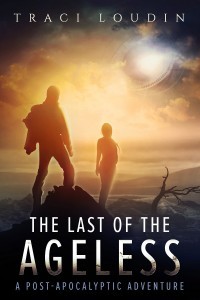 The Last of the Ageless by Traci Loudin:
The Last of the Ageless by Traci Loudin:
Three centuries ago, humans and aliens fought for control of the Earth, ending in an apocalyptic disaster known as the Catastrophe…
Dalan is a shapeshifter
He hails from a tribe of mutants dedicated to preserving fading species by taking their forms. To become fully recognized as an adult, he must pass a trial in the wastelands far from home.
Nyr is a killer
When her lust for bounty yields an ancient artifact of mysterious origin, everything she knows is turned upside down. Once a hunter, now a pawn, she must learn to rely on others to survive what’s coming.
Korreth is a slave
Without any extra talents, he depends on nothing more than his strength and wits as he flees the army of mutants that enslaved him. He must return home to warn his people before the swelling ranks of monsters threaten his family.
…but in the shadows, a new threat rises—one that could end what little remains of civilization: The Last of the Ageless.
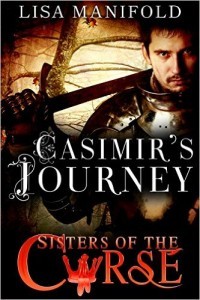 Casimir’s Journey by Lisa Manifold:
Casimir’s Journey by Lisa Manifold:
When Casimir looked up, the last thing he saw was Thea. He saw nothing after that and he didn’t expect to.
Until he saw bright, white light, and heard someone talking to him. This was nothing like he expected.
Follow Casimir as he works his way back to Thea – or will he? Catrin is determined that Thea is a waste of his time, talent, and certainly of his heart.
Who will prevail? A great power, or an even greater love?
Casimir’s Journey is Book Two in the Sisters Of The Curse series.
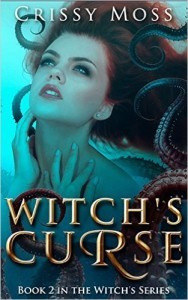 Witch’s Curse by Chrissy Moss:
Witch’s Curse by Chrissy Moss:
Hunted since birth, now Okira must use the power she’s been hiding…or die trying.
Trained in secret, hidden from the rest of the Sea of Tears, Okira felt safe; until fate had other plans for her. When a playful sylph pulls Okira into the ocean it sets off a chain of events that lead her down a deadly path.
Danger lurks around every corner. To survive Okira must tap into the abilities she has only begun to understand, stretching her knowledge to the brink.
Now Okira must travel across the Sea of Tears with the shape shifter, Brother Hawk. Together they must find a way to stop the acolytes in their mad lust for power before the high priest unleashes the kraken and destroys everyone.
Witch’s Curse is the second book in the Witch’s Trilogy.
Brother witches Josh and Chris have sacrificed a great deal for their magical responsibilities. Their Aunt Kathy is the only family they have left, and together they must face their enemies to keep them from targeting any more victims. But when Kathy is put in the hospital after an attack, the boys are a witch short.
With the brothers at their weakest, they uncover a growing new power trying to organize the demonic hierarchy. Josh and Chris are left alone to battle an evil stronger than anything they’ve ever faced. An evil so strong it might cost them their lives.
THE MELDLING is a tale of epic fantasy, set in a world where humans have been driven underground by a war not of their making, and one woman must find the truth of her existence within her own heart.
She was rescued from a darkened dungeon; brought out into the light with no memory of her past. Her only certainty was her name: Suzanna.
Her flesh marks her as a daemon, one of a race of deadly warriors locked in a war with their mortal enemies, the daevas, that has scoured the surface of the world. Humans are irrelevant to them both. But it was Lukas, a human knight, who carried her from the dungeon, nursed her back to health, and protected her from harm. Her body may be daemonic, but her soul is not, and there is a far deeper connection between her and Lukas than either of them will say.
Lukas decides to bring her to Bastion, the hidden underground city of the humanva, to face the judgment of the Distant Nine. On the journey, the truth is revealed: Suzanna is a meldling, a rare fusion of daemonva and humanva. Meldlings are unstable, dangerous, and prone to total madness. Suzanna may be the first to keep her sanity, but if the Distant Nine decide that she is a threat, she will also be the last.
Suzanna must accept her past, and finally learn who or what she really is, underneath her daemonic skin. Drawn into events beyond her control, the meldling will become the key to ending the war – but will it be with the destruction or the salvation of the daemonva?
And are her feelings for one human knight real?
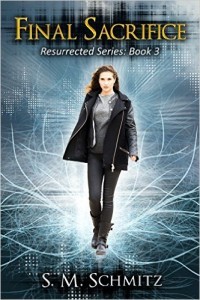 Final Sacrifice by S.M. Schmitz:
Final Sacrifice by S.M. Schmitz:
Lottie is determined to end the nightmare her resurrection has caused and the constant threat she and her friends face because she exists. She has organized a war against the leaders of the company that transports people from her home planet to Earth, and the time has come for her battle to begin.
In the final book of the Resurrected series, Lottie and her friends must attempt to destroy the business that has spent years trying to kill them, and now, there are thousands of people all over the world who are participating in Lottie’s insurrection. If she fails, she and her friends will lose their lives. But if she succeeds, she and her friends will finally have the freedom to live.
This is the sequel to Resurrected and Insurrected.
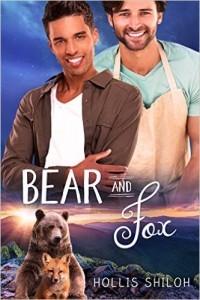 Bear and Fox by Hollis Shiloh:
Bear and Fox by Hollis Shiloh:
Dane is a lonely bear shifter who doesn’t know if he’ll ever find a mate. Then one day he finds himself defending a fox from a brutal wolf attack. He’s found his mate—and the fox shifter is scared of him.
Will Dane ever earn the trust of his mate, a shy, handsome, suspicious man who’s had little reason to ever trust anyone?
Contains a honey-loving bear, a sweet, suspicious fox, gay uncles, a tiny bit of shifter politics, and enough food to shake a stick at.
Heat level: very low
~32,000 words
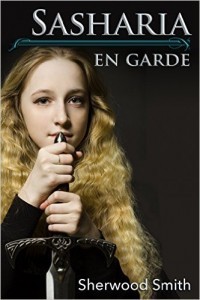 Shasharia En Garde by Sherwood Smith:
Shasharia En Garde by Sherwood Smith:
First published as two books — Once a Princess, and Twice a Prince — this romantic fantasy has been revised and published as one book, as first intended. It is set in the same world as Crown Duel, to which Sasha’s mother, Sun, was once swept away by a real prince.
But not to happily ever after. Her prince vanished, and a wicked king took the throne. Since then, Sasha and Sun have been hiding on Earth, both training in martial arts until Sasha is tricked into going back to Khanerenth.
She’s more than ready to kick some bad-guy butt, but is the stylish pirate Zathdar the bad guy? Or artistic, dreamy Prince Jehan, son of the wicked king?
Meanwhile Sun is determined to cross worlds to save her daughter. She might not have been a very good princess, but nobody messes with Mom!
Five tales of magic, technology, and adventure plunge deeper into the fantasy world of Sorcery and Science.
Silas sees a young Prophet girl fight off a band of elite soldiers during Silas’s Vacation.
In Solstice Games Assassin, Silas alone can stop an assassination that could catapult two empires into war.
Fireworks tells the story of Marin’s explosive plan to revolutionize airship travel.
In Agent of SIN, Selpe spy Leonidas Chase and his partner find themselves neck-deep in an investigation that could pit them against their empire’s most powerful aristocrats.
When one of Elitia’s greatest researchers goes missing, Ariella and Davin track him to a renegade camp in Portal Keys.
Revelations is Book 3.5 in the Sorcery and Science series.
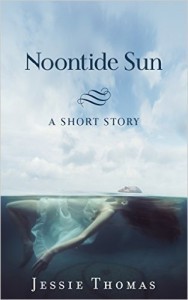 Noontide Sun by Jessie Thomas:
Noontide Sun by Jessie Thomas:
For seven long years, Sarah has heard nothing but her betrothed’s voice against a perpetual storm.
After incurring the wrath of a spiteful Redcoat officer capable of wielding magic, Sarah was separated across centuries from Gabriel, the young man she intended to marry. While Gabriel languishes in a prison where the years pass without aging him, Sarah is trapped in a present that isn’t her own with the key that can free him.
When the key starts to disintegrate, Sarah is forced into a race against time to rescue the young man she loves before they’re both lost to the depths of waning magic.
 Send to Kindle
Send to Kindle
August 26, 2015
Yet More 2015 Hugo Reactions
Yes, we’re still talking about the 2015 Hugos, so here are the latest links:
George R.R. Martin shares his impressions and experiences of the Hugo ceremony and also compares his predictions to the actual wins. What I find interesting is that he still seems to believe that Captain America: The Winter Soldier finished in second place in the best dramatic presentation long form category as a result of an anti-slate backlash, when it’s really just another symptom of the changing demographics of fandom, since Captain America: The Winter Soldier is not just an excellent movie, but also a favourite of many younger female fans.
Aaron Pound offers a detailed analysis of the Hugo voting data and in particular attempts to figure out how many puppy voters of either type there actually are.
Abigail Nussbaum, another potential nominee kept off the Hugo ballot by puppy shenangigans, offers her analysis of the Hugo results and also wonders what the approx. 900 to 1000 supporters of both puppy slates will do next year. She ends with an appeal which I fully second, namely that the nearly 5000 Hugo voters who are not puppies (as well as the other approx. 5000 non-voting Sasquan members) should take their nominating powers serious next year and nominate works they loved and enjoyed.
At NPR, Tasha Robinson points out that the puppy defeat may not be as decisive as it seems at first glance, since the puppies still forced all of fandom to deal with them and their largely imaginary complaints first, forced Hugo voters to read the works they put on the ballot (and contrary to what the puppies claim, most of us did read them or at least tried) and also managed to push works that a majority of fans would probably have preferred off the ballot.
Dara Korra’ti of Crime and the Forces of Evil also believes that the victory over the puppies may not have been as decisive as many believe, for the triumph of “No Award” was only the least bad outcome, not exactly a good one. And besides, the puppies have already said that they’ll be back next year and Vox Day is still trying to recruit GamerGaters.
At Reason, Peter Suderman points out that science fiction fans are always fighting over something or other and that the 2015 Hugo controversery is just the latest reiteration of that fight. However, Suderman believes that the fight will not destroy the genre nor the Hugos.
Eric Flint, who is generally considered a neutral voice in this debate by virtue of being a left-leaning Baen author, weighs in on the Hugos as well with a post that may be summed up as “a pox on both your houses”.
Eric Flint starts off by responding to Amy Wallace’s article at Wired to which I linked in my first post on the Hugo results. In particular, he takes issue with Amy Wallace describing puppy preference in science fiction as follows:
Would sci-fi focus, as it has for much of its history, largely on brave white male engineers with ray guns fighting either a) hideous aliens or b) hideous governments who don’t want them to mine asteroids in space? Or would it continue its embrace of a broader sci-fi: stories about non-traditionally gendered explorers and post-singularity, post-ethnic characters who are sometimes not men and often even have feelings?
Eric Flint offers a number of examples of writers whose work is enjoyed by the puppies and points out that quite a few of these works have female protagonists, characters of colour and LGBT characters, so Amy Wallace’s claim that the puppies only want fiction about “brave white male engineers with ray guns” can’t possibly be accurate. Except that the prominent spokepuppies explicitly stated that they championed exactly the sort of fiction Amy Wallace describes, most notably in Brad Torgersen’s infamous “Nutty Nuggets” post (I don’t really have to link to that again, do I?).
Of course, much of the fiction the puppies actually nominated doesn’t actually match the criteria they set out, as the dominance of dull Christian religious message fiction in this year’s and last year’s Sad Puppy slates proves. What is more, it is notable that none of the right-leaning authors with diverse characters that Eric Flint names were actually on any of the puppy slates with the sole exception of Brad Torgersen’s own story The Chaplain’s Legacy, which was nominated in 2014 (and which coincidentally I would subsume under Christian religious message fiction, of which the puppies seem to be quite fond).
For a neutral of sorts response to the 2015 Hugo uproar, I actually prefer this post by C. Joshua Villines to Eric Flint’s. Villines also makes some good points about how to address common puppy grievances.
Frank Wu extends an olive branch to the puppies by offering to read puppy recommended work and put them on his own recommendation list, if he enjoys it, and calls for others to do the same. It’s generally a good post and nice gesture (though the puppy shit in the comments shows that it will likely not be accepted), if not for the entirely unnecessary slam against urban fantasy and “mopey teens in dreary dystopias”. Never mind that urban fantasy and YA dystopias are severely underrepresented at the Hugos anyway.
Aliette de Bodard, another potential 2015 Hugo nominee kept off the ballot by the puppy tactics, makes a point that’s very similar to the one I made in my first Hugo reaction post, namely that the wins for Liu Cixin and Thomas Olde Heuvelt prove that the Hugos are finally becoming more international and willing to look beyond Anglophone SFF. She also writes:
different stories speak to different people. A thing that I like might be one that turns you off, and vice-versa. To say that a thing that I like is not “proper science fiction”; that SFF fans need to reclaim the field against the kind of thing I write; that people like me having success and being nominated are a sure sign the field is headed downhill?
Uh. Read that thing I wrote again please.
I wholly agree with her points. Don’t like a particular story, novel or whole subgenre? Fine. But claiming that this story, novel or subgenre is not proper SFF, that it shouldn’t be nominated for awards and best shouldn’t be published at all? That’s not okay.
And yes, it’s only the puppy side that wants works they don’t like excluded from the genre altogether. The rest of us may not particularly care for one work or even a whole subgenre and we might be rather miffed to find those works forced down our throats via the Hugo ballot, but we don’t claim that these works are not SFF (except Wisdom from the Internet, because it really has no connection to the genre) nor do we deny the right of those works to exist (not even Wisdom from the Internet).
Though it seems that – at least judging by this post at Black Gate from what seems to be a moderate Sad Puppy supporter – US conservatives genuinely seem to feel that WorldCon fandom wants to exclude them and dislikes the stories they favour. Apparently, they also still seem to think that their tastes represent the majority of fandom, even though the Hugos have decisively proven the contrary.
Talking of tastes, hardly any of the puppies have ever said what was so great about the things they nominated or even why they liked them. The closest we’ve come to that were statements like “Jim Butcher is very popular”, “Kevin J. Anderson has written and sold a shitload of books”, “Marko Kloos has a really great ranking at Amazon.com” and “Toni Weisskopf is a great editor and lovely person”. None of which really explains why they considered these particular works worthy of nominating them.
Meanwhile, Ann Leckie provides a primer for the various puppies and everybody else about how to graciously react to not winning a Hugo. For let’s not forget that this whole thing started because Larry Correia was really pissed that he did not win the Campbell Award back in 2011.
Finally, here is David Gerrold’s Guest of Honour speech from Sasquan reprinted in its entirety. He doesn’t directly address the puppy mess, though the indirect implications are pretty clear.
And last but not least, here is a lovely webcomic about the puppy campaign and the reactions to it.
Comments closed.
 Send to Kindle
Send to Kindle
August 25, 2015
More 2015 Hugo Reactions
I posted my massive Hugo reaction post yesterday with links to other reaction posts. But considering that the 2015 Hugo debate started well before the nominations were announced and lasted through the entire period between the announcement of the nominations in April and the announcement of the winners last weekend, it was obvious that the post-Hugo discussion would go on for a while longer as well.
So if you’re not all-Hugoed out yet, here are the latest reactions:
At Teleread, Chris Meadows offers an extensive postmortem of the Hugos and the puppy affair with lots of links to various other reactions.
Font Folly also offers a round-up of reactions and quotes from mine, including embarrassing typo (I know how to spell “coincidentally”, honest).
Tegan Moore shares her experience of the Hugo ceremony from the POV of someone who was there and not a fan of the puppies and their tactics.
On the other hand, Jennifer Brozek discusses the Hugos from the POV of an unwitting slate nominee who ended up under “No Award” through no real fault of her own. Coincidentally, the anthology Chicks Dig Gaming, which Jennifer Brozek coedited, was pushed off the ballot by puppy shenangigans, so she lost two awards to the puppy mess.
At Comics Alliance, Andrew Wheeler celebrates the Hugo win for Ms. Marvel and notes some similarities between comics and the SFF genre in the struggle for more diversity. He’s certainly right about Ms. Marvel (though my first choice in the graphic novel category was Saga) and coincidentally also about the increasing diversity in the US comics sphere.
Now comics – like SF for that matter – have always been a medium where minorities found some degree of welcome. After all, the superhero comic was basically created by the children of Jewish immigrants. Nonetheless, comics had their share of issues, particularly with regard to women creators. I was a massive comics fan in the 1980s and 1990s and remember that at the time, white British men were at the top of the heap as writer of US comics, joined by some white American men, while Asian and Hispanic men were some of the most popular artists. Women, however, were largely absent and it certainly showed in the way female characters were portrayed. Character diversity was decent with regard to race and ethnicity, but then I was an X-Men reader and the X-Men had always been the diversity comic. LGBT characters were still rare, though there were a few. Hell, I actually read Northstar’s officially coming-out in Alpha Flight (though every regular reader had guessed long before, because the hints were very blatant) and remember what a milestone it was, even though the issue in question seems painfully earnest twenty years on.
I walked away from mainstream US superhero comics in the early 2000s, when it seemed that new storylines coming out where just the umpteenth retread of stories that had already been told three times before and usually better, too. I didn’t start paying attention again until fairly recently and noticed to my surprise that many of the big name writers and artists were now women, that plenty of characters had come out as gay in the meantime and that some long established characters had handed over the shield/hammer/mantle to women or people of colour. Which pleased me to no end, though again there were plenty who had problems with the fact that a woman was now wielding the hammer of Thor, yet had accepted without complaint when Thor passed on the hammer to a horse-faced alien and turned into a frog!
At Playboy of all places, Noah Berlatsky points out that women and minorities aren’t actually new to science fiction and fantasy, but have been part of the genre all along, even though they are often erased. And for the record, I did not know that Arthur C. Clarke was gay.
As for the puppies themselves, they’re whipping themselves into a frenzy how those evil Social Justice Warriors would rather burn down the Hugos than give them to the puppy candidates and how they want to take over the world and kick everybody else out of the genre (Uhm, no, puppies – actually, it’s you who want to kick out works and authors you don’t like) and how it’s all a Marxist/Tor/Alinsky conspiracy. In short, the usual puppy talking points. The indomitable Mike Glyer at File770 has a round-up of puppy (and other) responses for those with the stomach to wade through them.
Though I do want to point out this article by someone named Mytheos Holt at a site named The Federalist, because it’s simply so over-the-top. It starts off by comparing the imaginary cabal of Social Justice Warriors to IS and then just keeps going on about how the Social Justice Warriors are waging a “war on nerds” and a “war on art” (which is strange, since the puppies usually state that they want SF to be entertainment rather art and some of them are actually quite vocal anti-art) and they would burn Mozart and Shakespeare (I didn’t know either was nominated for a Hugo).
At Shabogan Graffiti, Jack Graham attempts to analyse the puppy mindset in general and their victim complex in particular and also draws parallels to tactics of far right groups in general. It’s an interesting post, though Graham’s taste in movies is very different from mine.
For a moderate, i.e. not frothing at the mouth, reaction from the puppy camp, there is this post by Nathaniel Givens. Unlike most other reactions from the puppy side, he does acknowledge that flooding whole categories with slate nominees was not a good idea, that “has sold a lot of books” is not actually a valid criteria for awarding anybody a Hugo and that some puppy nominees were of poor quality (though we don’t necessarily agree which nominees those are).
However, he also believes that the various puppies had legitimate grievances, that a shadowy conspiracy of Social Justice Warriors has hijacked the Hugos and intends to kick out conservatives and that many Hugo winners of past years, including last year’s winner in the best novel category Ancillary Justice, only won because of political correctness and not because of merit. Which is, frankly speaking, horseshit. It’s all right if he doesn’t like Ancillary Justice and Ancillary Sword. After all, tastes differ and there are plenty of Hugo nominees and even winners I don’t like either (e.g. Orphan Black, which won this year in the short dramatic presentation category). But that doesn’t mean that those winners are not legitimate and only won because of political correctness/logrolling/conspiracy. It simply means that my tastes are out of touch with those of the majority of Hugo voters.
Indeed, Adam-Troy Castro points out that the no-awarding of puppy nominees does not mean that straight white Christian men, conservative authors and adventure-focussed science fiction will never win Hugos again or that the lives and careers of slate nominees are irrevocably ruined. It merely means that fandom was really, really pissed off at the slate voting tactics of the puppies and voted accordingly.
Matthew Foster whose late wife Eugie Foster very likely lost a Hugo nomination to the puppy shenangigans, Chuck Wendig and John Scalzi agree that the reason the puppies lost so decisively is that they decided to be massive jerks about their campaign and actually became ever worse and frothier over the summer. And no one likes arseholes regardless of political affiliation.
Comments are closed for obvious reasons.
 Send to Kindle
Send to Kindle
August 24, 2015
Hyper-dramatic evening skies
After all that Hugo blathering, here are some pretty photos of hyper-dramatic sunsets and evening skies:

Raspberry sunset photographed this evening

The sun has set, but the clouds still make for a dramatic evening sky, as photographed from a first floor window.
 Send to Kindle
Send to Kindle
How the 2015 Hugos proved against all odds that SF is becoming more international and more diverse
I guess by now you’ve all heard the news. After an unprecedented four and a half months of fighting, debate and ever more bizarre escalations, the 2015 Hugo Awards have been awarded Saturday night and the Sad and Rabid Puppies have been thoroughly trounced with a record-breaking five wins for “No Award” in novella, short story, related work as well as in the two editing categories. I did expect “No Award” to win at least two categories, though I’m surprised it won so decisively, e.g. I would have expected an award to be given in the two editing categories and probably in the short story category as well.
The full list of winners and nominees is here and a breakdown of the voting and nomination stats is here.
A lot of people have already weighed in on these results. Chaos Horizon and Nicolas Whyte have both attempted some analysis, including trying to determine how many puppy voters of either sort there actually are (around 500 apparently, which is more than I expected, though not enough to drown out the wider mass of fandom).
Several people, including Andrew Liptak and Natalie Luhrs, have attempted to reconstruct what the 2015 Hugo ballot might have looked like without canine interference. In almost every way, that alternate ballot is so much better with regards to quality as well as diversity than what we got. Coincidentally, several of my own nominees also show up on the puppy-free ballot. And in fact, I expect that there will probably be some kind of alternate or retro-Hugo awarded for the puppy-free ballot eventually.
Coincidentally, it also turns out that the puppies not just knocked works they obviously wouldn’t like off the ballot (including the last ever published story by the late Eugie Foster), but also exactly the sort of works and writers they claim to champion such as Patrick Rothfuss in the novella category, Andy Weir and Django Wexler for the Campbell Award, Agents of S.H.I.E.L.D. in the dramatic presentation category as well as Writing Excuses and two books about gaming in the best related work category (okay, the gaming books are from a feminist POV, so maybe not). Further down in the best related work category, we also have a Heinlein biography, while further down in the novel category we have The Martian by Andy Weir. Now personally I find The Martian overrated and let’s not even talk about the scene in the trailer for the movie where our heroic astronaut somehow manages to grow potato plants from deep-frozen and peeled potatoes (I guess something can still be hard SF while making no biological sense at all), but The Martian is exactly the sort of “white dude does sciency stuff” SF that the puppies claim to love.
At Wired, Amy Wallace offers a lengthy summary of the 2015 Hugo controversy and why it matters. It’s a good article with the caveat that Rose Fox adds in this Storify, namely that women and writers of colour and LGBT writers have always been part of the genre, even while they were being erased. There are several quotes from Vox Day in the article, which clearly illuminate what sort of person he is, just in case there was any doubt. There is also this quote, attributed to an unnamed Sad Puppy supporter:
“Just because you had a dream doesn’t mean we all want to read it,” he said. “Just because you have an MFA and write a story, you may win a Hugo, but don’t kid yourself: Everybody’s had a dream, but they didn’t write it because they knew it wouldn’t sell. Some of this stuff is unreadable.”
In many ways this quote by the unknown puppy clearly illustrates the attitudes that already became obvious in Brad Torgersen’s infamous “Nutty Nuggets” post. A lot of puppies don’t just want works they don’t like to be excluded from the Hugos, they deny works they don’t like the right to exist period. They don’t want these works to be published, they don’t even want them to be written at all.
Well, Mr. Unknown Puppy, personally I didn’t want to read the adjective-laden religious blatherings of John C. Wright and I certainly didn’t want to read them five times over. Nor did I want to read the tank porn novella or the Gary Stu gun porn of Larry Correia (which is of course totally not message fic) last year, let alone the unfunny and more or less offensive tweets by the gentleman who likes posing with very big guns (he actually had an even sillier profile photo a while ago). I found all of that stuff unreadable, and believe me, I tried. But I don’t deny any of those works the right to exist, since they all obviously have their fans, even the gentleman of the big gun and the unfunny tweets.
In some ways the statement of the unknown puppy dovetails with a troubling tendency I have observed in self-publishing circles, namely the belief that everything should be written to market (and the market only ever wants one thing, of course, niches or differing tastes are irrelevant) and that the only valid strategy is to cash in on whatever is trending at the moment. Works for which there is no clear market shouldn’t be published, they shouldn’t even be written. Writing a work to please yourself is considered literary masturbation and a waste of time. Amazon.com rankings are the only measure of literary quality (never mind that Amazon isn’t even the entire online book market, let alone the entire book market) and if you’re not selling at whatever numbers these people consider high enough, you’re not even supposed to speak, cause your opinion doesn’t count. It’s a silencing tactic, pure and simple, though I suspect not everybody realises that. What makes this even more troubling is that indie publishing was supposed to bring freedom from the purely market-driven dictates of traditonal publishing and yet in a scant few years has managed to become even more market-driven.
There is a certain affinity between the puppies and the indie publishing world (though it is notable that there are just as many puppy opponents among indie writers as puppy supporters) and indeed one of the very few positive things to be said about the puppy campaigns is their attempts to promote indie authors. Though the puppies were not actually the first to put a self-published work on the Hugo ballot – that honour belongs to Seanan McGuire’s novelette “In Sea-Salt Tears” which was nominated for a Hugo in 2013 – and none of the works by indie authors which made it onto the Hugo ballot courtesy of the puppies were actually self-published.
Talking of indie publishing, Amy Wallace also interviews indie writer Annie Bellet, one of the nominees on the puppy slate who withdrew from consideration, which is interesting since very few of the many pixels spilled on the puppy affair actually considered the POV of those who were more or less innocently coopted onto the puppy slates, the puppy fig leaves so to say. It’s those fig leaves, people like Annie Bellet, Marko Kloos, Jim Butcher, Kary English, Kevin J. Anderson, Rajnar Vajra, Gray Rinehart, Michael J. Flynn, Sheila Gilbert, Anne Sowards, Jennifer Brozek, Mike Resnick, Edmund Schubert and others, who were most hurt by the puppy shenangigans. Cause these were the people who either withdrew from the ballot or found themselves ranked under “No Award” due to having landed on the puppy slate. I thought the puppies claimed to like those people, so is landing them under “No Award” really what they wanted? Why would they put people they like into this position?
For the record, I decided to vote those slate nominees whose work I enjoyed above “No Award”, particularly if they were fig leaves rather core puppies. And I did rank Jim Butcher, Kary English and Rajnar Vajra as well as some of the editing and artist nominees above “No Award”, because I liked their work well enough to vote for it. I also put the Kevin J. Anderson novel above “No Award”, though in last place, because I felt a bit sorry for him, since it was kind of obvious by the time I cast my votes that he was not going to win, considering that not even the people who nominated him seemed to like the novel in question all that much (well, to be fair, it wasn’t very good), which begets the question why they nominated him in the first place.
Indeed, the only categories where I voted “No Award” in first place were novella and related work, because I didn’t like any of the nominees even the slightest bit. However, I also understand everybody who blanket-voted “No Award” above all slate nominees, which according to the analyses linked above approx. 2500 voters decided to do. Never mind that in many cases, there was little difference between voting “No Award” on merit and voting “No Award” as a protest against slate tactics, because frankly speaking a lot of the puppy nominees simply weren’t very good. It wasn’t just taste differences either, though those play a role as well. For example, I really, really don’t like religion in my science fiction, so I’m not going to vote for any of the several pieces of religiously flavoured SF the puppies nominated.
However, some of the puppy nominees also had technical issues such as editing problems (including works published in mainstream venues), several others were serial installments that did not work as self-contained stories (three of the Analog nominees), some had zero connection to speculative fiction (Wisdom from My Internet most notably) and at least one puppy nominee seemed unable to distinguish between prose fiction and screenplays. Honestly, the puppies didn’t do themselves any favours with the quality of many of their nominees. But then the two puppy campaigns weren’t really about quality at all.
And though the puppies predictably try to blame the triumph of “No Award” on what they call the Social Justice Warriors, CHORFs or whatever cutesy insult they have come up with now, it was puppy tactics which led to this outcome. Or did they honestly think that people would vote for works they actively disliked, that they would vote for people who had directly or indirectly insulted them in some cases, just to disprove a conspiracy that only exists in the minds of the lead puppies anyway? I do feel sorry for the puppy fig leaves, for people like Kary English, Rajnar Vajra, Sheila Gilbert, Anne Sowards, Jennifer Brozek, Mike Resnick and others. But it was the puppies who put them in this position. It was the puppies who hurt writers, editors and artists who often did not deserve the humiliation of landing under “No Award”.
Meanwhile, the various puppies are predictably whining. Here are some prime examples courtesy of Brad Torgersen, Vox Day, Sarah Hoyt, John C. Wright and Vox Day again, who of course insists that several categories going to “No Award” was his plan all along. Of course, if Daleks had stormed the Hugo ceremony to exterminate everybody in sight (well, there was a Dalek on stage, but it only handed out Hugos), he’d probably have insisted that that was his plan all along as well. On the other hand, several major puppies seem to be conspicuously silent for now. We’ll see how long that lasts.
I’ve already repudiated the most common puppy talking points in my 2015 Hugo nominations reaction post, so I’m not going to do so again. The puppy arguments only make sense in the puppyverse anyway, not in the reality that the rest of us inhabit.
But enough of puppies and “No Awards”, lets talk of those Hugos that actually were awarded and those who won them. All in all it’s a good and surprisingly international and diverse list of winners, particularly given how poor the selection was this year.
What’s particularly notable is that both Hugos in the two fiction categories that actually were awarded went to translated works by non-anglophone writers, which is a first in Hugo history. Coincientally, both are also the first Hugo wins for their respective countries of origin. Now neither The Three-Body Problem by Liu Cixin, translated by Ken Liu, nor “The Day The World Turned Upside Down” by Thomas Olde Heuvelt, translated by Lia Belt, were my first choice in the respective categories. For novels, my first choice was a close race between Ancillary Sword and The Goblin Emperor (I voted for Ancillary Sword in the end with Goblin Emperor in second place). I suspect that The Three Body Problem profited from the fact that quite a few puppy voter liked it (including rabbit puppy in chief Vox Day), whereas they were unlikely to enjoy either Ancillary Sword or The Goblin Emperor. In the novelette category I placed “The Triple Sun” by Rajnar Vajra narrowly above “The Day The World Turned Upside Down”, because the former made me smile, while I did not much care for the whiny narrator of the later.
But though neither Thomas Olde Heuvelt nor Liu Cixin were my first choice in their respective categories, I’m happy that they won, because their wins show that the Hugos are becoming a more truly international award. And yes, it’s problematic that a white Dutchman and a Chinese man, two writers who have nothing in common apart from the fact that English is not their first language, are both subsumed under the header “international SF”. But given how Anglo-American dominated the Hugos and WorldCon have traditionally been, it’s still a great step forward.
Wesley Chu, who won the Campbell Award, actually was my first choice in that category and a very worthy winner he is, too. Ditto for Julie Dillon and Elizabeth Leggett in the art categories, Laura J. Mixon in the fanwriter category, Galactic Suburbia in the podcast category, Lightspeed and Journey Planet in the semi-pro and fanzine categories. All of these were actually my first choices as well.
I’m also pleased to see Ms. Marvel, the classic Marvel Comics teen superhero tale retold from the POV of a Pakistani-American girl written by muslim women, win in the graphic novel category, even though I voted for Saga above Ms. Marvel. In general, the graphic novel category was very strong this year and I had a hard time deciding between Saga, Ms. Marvel and Rat Queens and would not have minded a win for Sex Criminals either.
Best dramatic presentation short form is the one category where my personal tastes are completely out of step with those of the majority of Hugo voters, because I intensely dislike Orphan Black and placed it under “No Award” along with Grimm. And yes, I recognise the acting skills of Tatjana Maslani and would actually applaud, if she won the Emmy. But the Hugo is not an acting award and as a piece of television, Orphan Black simply doesn’t work for me. However, the show is popular and I don’t mind that it won. Besides, after years of the short dramatic presentation category going either to Doctor Who or Game of Thrones, it’s good to see something else win for a change.
Guardians of the Galaxy was not just the obvious winner in the long dramatic presentation category and my own first choice (though I had a hard time deciding between Guardians and Captain America: The Winter Soldier), but also the only puppy nominee to actually win. But the puppies can’t claim that as victory, because there was no way that the most popular movie of 2014 in North America was not going to win, especially since it was also a movie that was widely beloved in SFF fandom. I’m also not surprised that Captain America: The Winter Soldier finished in second place and unlike George R.R. Martin did not see it as an outsider at all. In fact, when I read George R.R. Martin’s “Handicapping the Hugos” post with regard to The Winter Soldier, I thought, “You don’t really know younger female tumblr fandom, do you?”
Final proof that both the Hugos and WorldCon are becoming more international is that Helsinki won the four-way site selection race and will host the 2017 WorldCon, beating out Washington DC, Montreal and Japan. This makes me happy, because it means that the “world” in WorldCon is finally given more consideration. And since WorldCon is back in Europe, it means that I’ll likely be going in 2017. Coincidentally, my Mom has expressed interest in going as well (“Only if you don’t mind…”), which surprised the hell out of me, since she’s not a fandom person, though she reads and watches the occasional bit of speculative fiction. I fully expect her to nominate J.D. Robb for a Hugo, when the time comes.
In general, this year’s Hugo results confirm yet again that the demographic of SFF fandom are changing. SFF fandom is getting younger, more female, more international, less straight and less white. And of course, these changing demographics influence what is nominated for and wins awards. Foz Meadows goes a bit more into this in her excellent attempt to analyse the puppy mindset.
Not everybody is happy with these changes and not everybody unhappy with this is a puppy either, though what I dubbed the “anti-nostalgic fraction” in the post linked above hasn’t yet made their views about this year’s Hugos known. Now I have some sympathy for the fact that some fans feel alienated by the changing demographics and changing tastes of SFF fandom. There was a long dark time in the early 2000s, where my personal tastes did not align at all with what got buzz and won awards and I nearly wandered away from SFF altogether. And while my personal tastes are better represented by the Hugos and Nebulas these days, my favourite novel of last year did not even make the extended nomination list. Neither did my favourite novel of 2013.
However, one thing that most of the puppies really don’t get is that taste is subjective and that majority of fandom does not share the tastes of the puppies. The puppies, however, seem to live in an ideological and also apparently geographic bubble (note how many of them seem to cluster in the Western central US) and literally can’t comprehend that other people do not share their tastes and outlook. Hence, Redshirts or Ancillary Justice or “The Water That Falls On You From Nowhere” or “If You Were a Dinosaur, My Love” can’t possibly gain nominations and win awards, because people genuinely like them – no, it has to be a conspiracy orchestrated by a shadowy Communist cabal that meets in the basement of the Flatiron building. And frankly I don’t really get the puppy obsession with casting Tor as the enemy anyway (which predates the uproar about some remarks made by Tor art director Irene Gallo), especially since outside Tor.com (which is a different beast from Tor Books, the publishing company) Tor’s track record isn’t actually all that great regarding diversity and most of their efforts still seem directed at promoting books by white men.
Talking of which, Damien Walter, the puppies’ least favourite journalist and critic (they hate him so much that Larry Correia even addressed his replies to a Guardian article written by Adam Roberts to Damien Walter instead, since he apparently failed to check the byline) not just offers a pretty scathing postmortem of the puppy campaigns, but also points out that though SFF is becoming more diverse, the US/UK publishing industry still tends to push primarily books by straight white dudes. Here’s a quote:
A snapshot of today’s sci-fi publishing industry – as opposed to the fandom that ultimately underwrites the industry’s business – does not show a diverse picture. Both bookshelves and cinema screens are currently dominated by the Matt Damon/Andy Weir vehicle The Martian and its archaically old-fashioned (and vastly overrated) SF. The lead sci-fi news story of recent weeks is Ernest Cline’s high seven-figure advance for a third novel, which will presumably pander to exactly the same Beavis and Butthead demographic as Ready Player One and Armada. And with all the controversy around the Hugo awards, this year’s all-white male shortlists for the David Gemmell Legend awards crept past almost, but not quite, without comment. None of these creators or awards can be blamed for the field’s lack of diversity. But they are indicative of an industry that still categorises genres on gender lines – dystopian YA sci-fi for the girls, axe-wielding heroic fantasies for the boys. Worse, it still seems to believe, despite much evidence to the contrary, that stories for a narrow, white male demographic are the way to make money.
It seems Damien Walter is no more a fan of The Martian than I am (maybe he also knows a thing or two about growing potatoes) and was also put off by the excessive promotion for Ernest Cline’s latest novel Armada. Now both The Martian and Ernest Cline’s novels are highly popular and tastes do differ. Nonetheless, it is notable how much promotion Ernest Cline’s latest novel got (ditto for John Scalzi’s latest) compared to what books by women and minorities get. The playing field is still far from level, even though SFF is becoming more diverse.
However, the puppies have succeeded at least in one of their stated goals and that is increasing the voter base and participation in the Hugos, though I suspect this outcome isn’t quite what they had in mind. So where do the Hugos and the genre in general go from here?
I guess it’s too much to hope that the puppies will simply stop or at least change their tactics to compile a recommended reading list rather than a voting slate. The Sad Puppies have already nominated their leader for the 2016 campaign and Vox Day is uttering his usual array of dire threats. I guess it’s also too much to hope that they will at least tone down their shrill culture war rhetoric, especially since even the more moderate puppies seemed to become increasingly shriller as the debate went on.
However, we have a lot more Hugo voters this year than we had in 2014 and all of those voters have nomination rights for 2016. And approx. 2500 of the 2015 Hugo voters were so disgusted with puppy tactics that they blanket-voted everything on the puppy slate under “No Award”, while another approx. 1000 voted most puppy nominees under “No Award”. As for the new voters recruited by the puppies, who knows how they’ll nominate? I hope that at least some of them will trust their own tastes rather than rely on what the puppy leader put before them.
But in order to prevent a repeat of the 2015 debacle, all eligible Hugo voters/nominators, that is the over 11000 members of Sasquan as well as members of next year’s WorldCon in Kansas City and the 2015 WorldCon in Helsinki, need to get out there and nominate.
Even if you haven’t read/watched a whole lot in 2015, nominate what you read/watched and enjoyed. Trust your own taste and nominate accordingly. Only nominate what you have actually watched or read. Don’t blindly nominate what someone else, whether puppy or non-existent secret Communist cabal, tells you to. Write down what you enjoy as you read/watch it, so you’ll have a handy record of SFnal things you enjoyed in 2015 come nomination time.
If we all do this, then maybe we’ll have a 2016 Hugo ballot that better reflects the preferences of all of fandom.
Comments are off. Puppies, whine in your own spaces.
 Send to Kindle
Send to Kindle
Cora Buhlert's Blog
- Cora Buhlert's profile
- 14 followers



